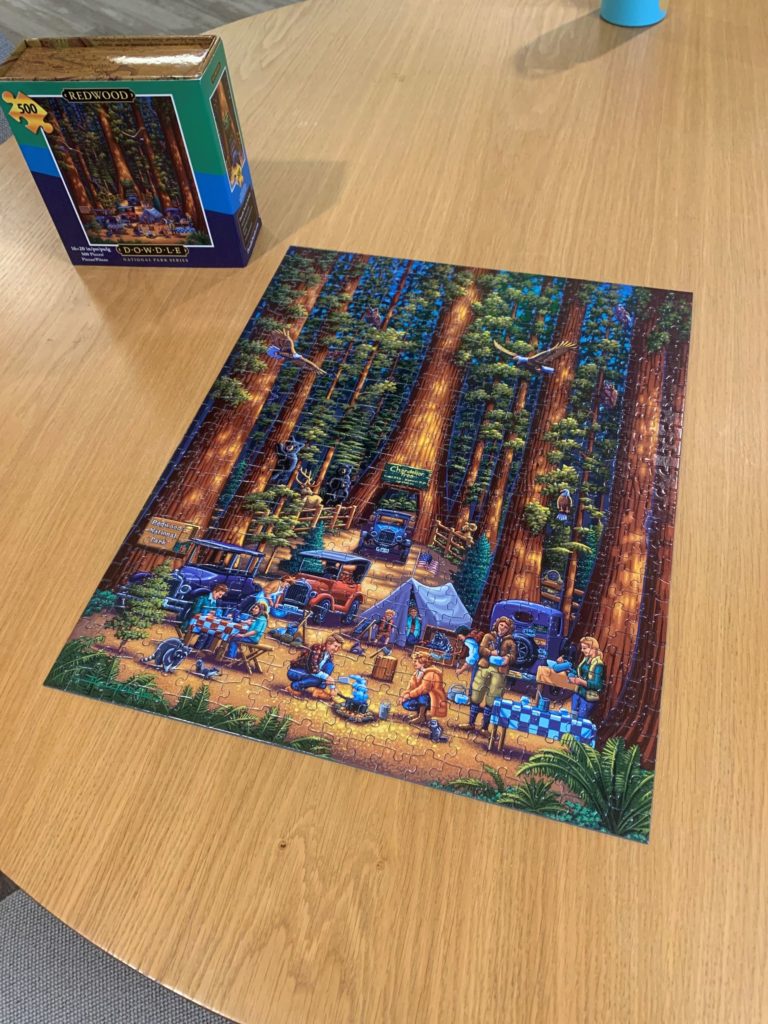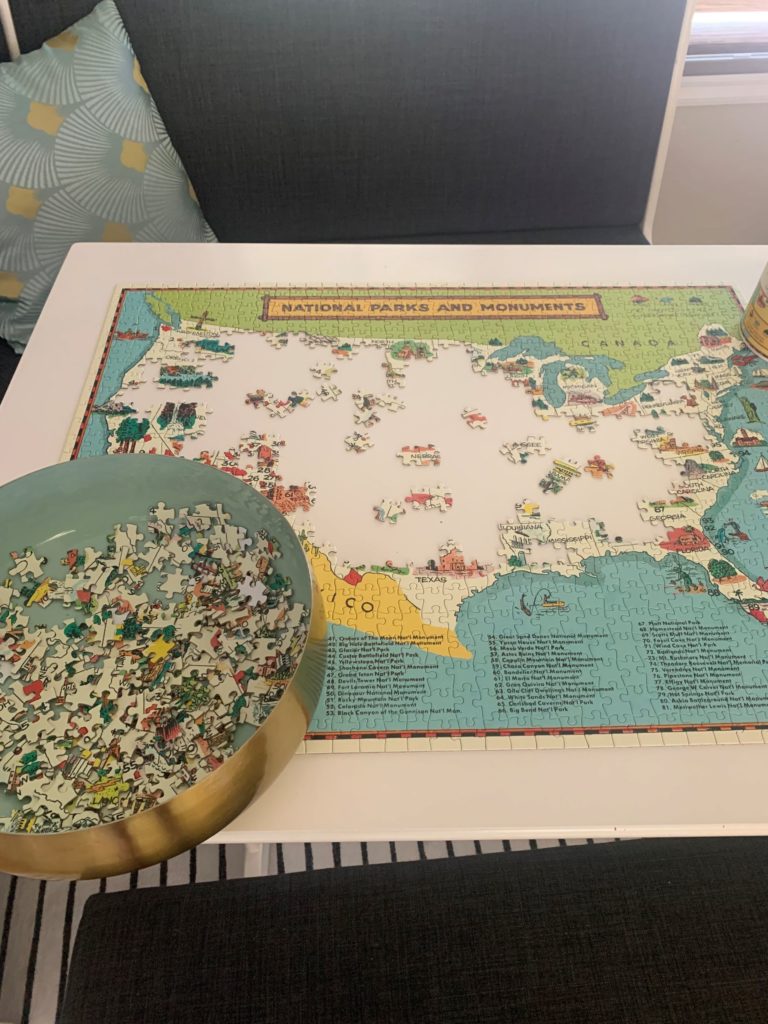I am a firm believer that the mind needs exercise. I think that as a lot of people age, they kind of give up and watching TV all day does nothing stimulating for the brain. I believe that watching a screen dulls the brain. This can be kind of good when you are sick, but too much of anything is not great. Heck, too much exercise is not good either.
While my wife and I were staying at family housing, she asked if I wanted to do a puzzle with her. I said sure, I like to do them and what else was I going to do anyway. This is something that I found very fascinating. It was how different we approached the activity.

I can’t say that what I am about to talk about is 100% accurate but it seems to fit. A few years ago I was having a conversation with a boss. He told me that there were two types of problem solvers and he used a football analogy. Some problem solvers use the long bomb method. Eventually enough attempts were going to score. When that happens, it seems like going from problem to solution without much work in between.
The other kind of problem solver is like the west coast offense. The goal for every play to get two to four yards. Enough of those plays and you will score every drive. You just continually moving the ball forward until the other team makes a mistake or you have run out of field.
Getting back to puzzles. My wife and I have two different tactics. I usually let her do the boarder while I sort the pieces into groups. The groups are by the different subject matters on the puzzle. She tends to pick the easiest stuff next whereas I tend to go toward the most difficult part of the puzzle. I usually do this to give us separation between what we are working on because it is hard. With two people trying to place pieces in the same place.
What really makes us different is how we go about the piece identification and placement. She picks up a piece and studies the picture deeply. She searches the picture until she finds where exactly the piece goes. If it is able to be placed, she will and if not she will put the piece in close proximity to where the finished location will be. It is the precision of a sniper.
I on the other hand group pieces by relative color. My technique is to look at the shape of the where the pieces go and match them to the possible options. I quickly sort through orientation and relative grouping until I find the fit. Often times, I place three to five pieces to her one. But sometimes I misinterpret where I am at with the picture and what pieces I have left causing handle pieces many ties more than necessary.
Both techniques work. Since we work on the same puzzle all the time it is hard to say what is more effective. In order to know, we would have to each do the same puzzle or time ourselves. I don’t think it really matters but I do find the subject matter interesting.
End Your Programming Routine: Honestly, if I had a choice to build a team I would like some of both types of problem solvers. My preference would be to have more of the west coast offense with a few long bombers. I think that is the best of both worlds. Each of us could learn to do both types problem solving if we want to. That is the great news of being aware of the different techniques.

Recent Comments